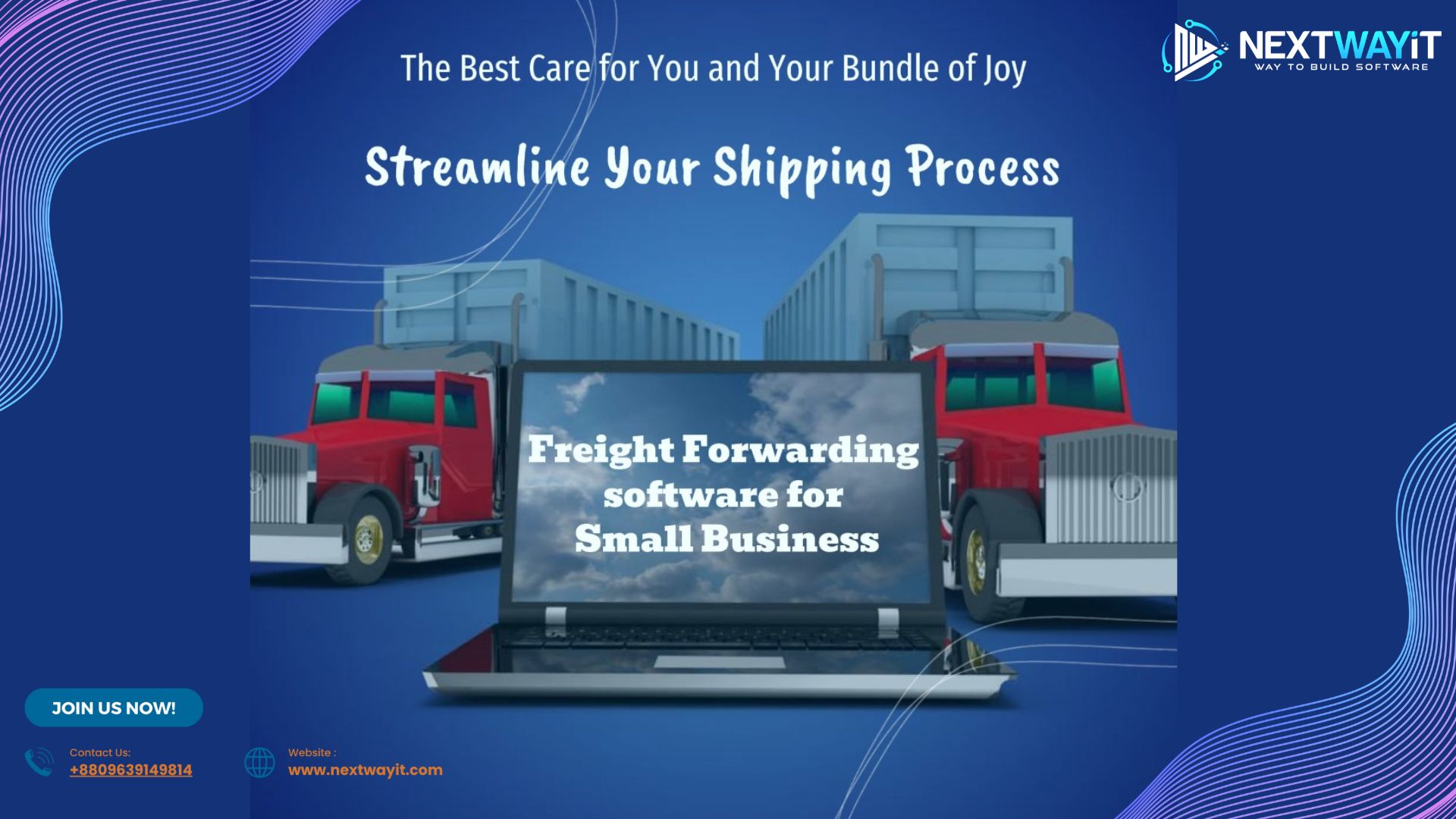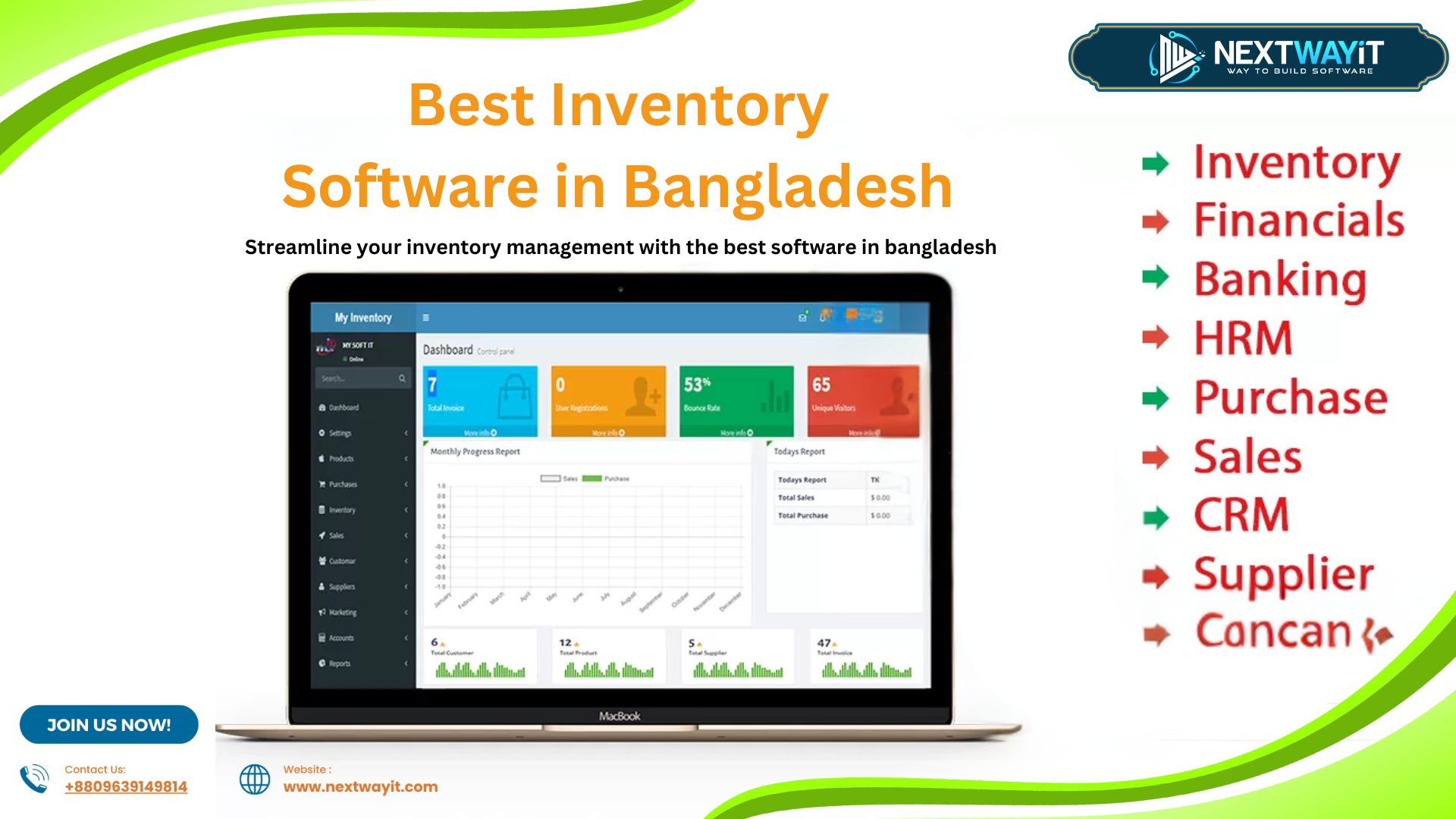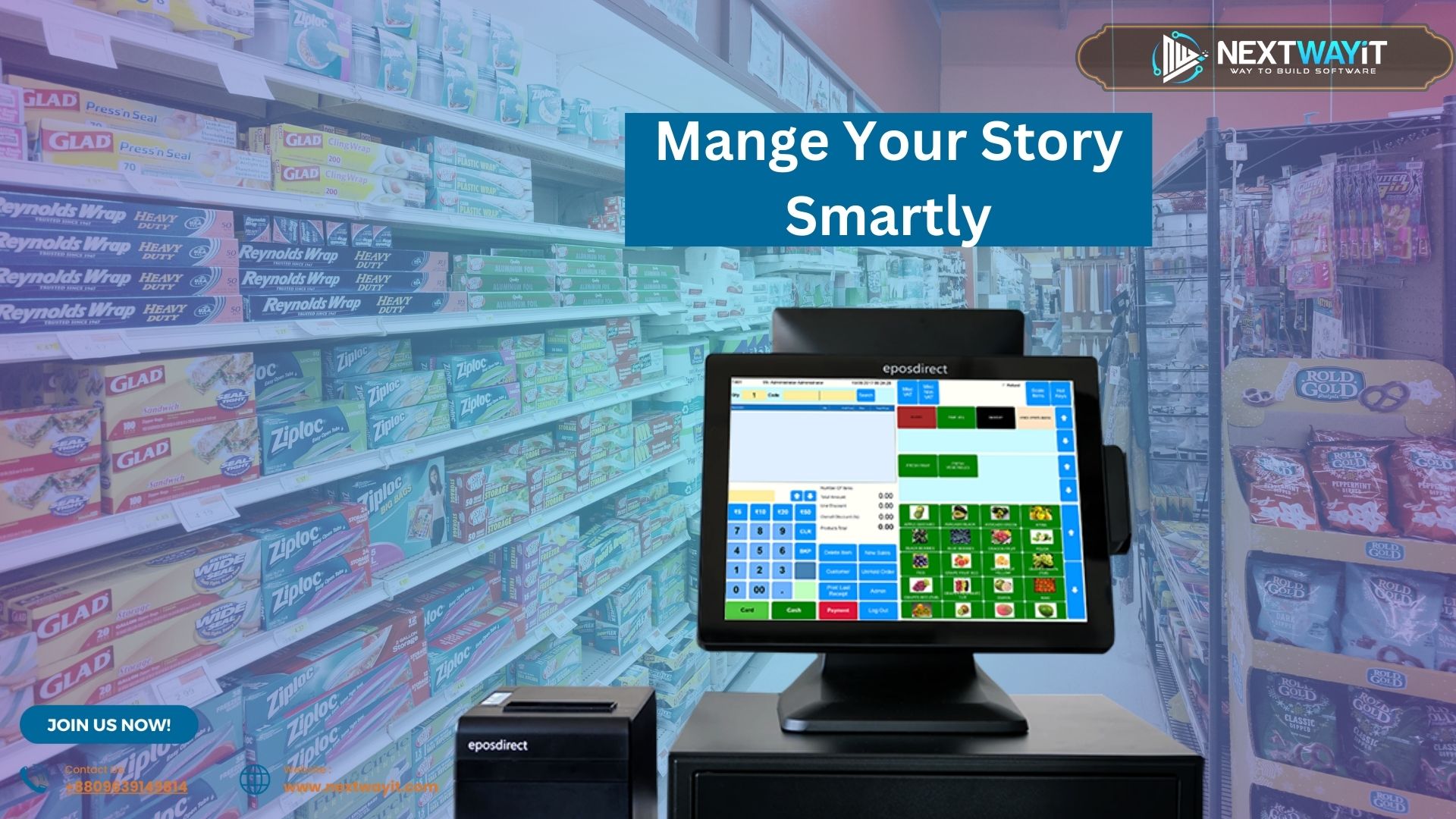
Freight Forwarding Software for Small Business
Transforming Small Business Logistics with Freight Forwarding Software
Introduction: Navigating the Complexities of Global Trade for Small Businesses
In this article discuss about Freight Forwarding Software for Small Business . In an era of globalization, small businesses are no longer confined to local markets. With the rise of e-commerce and international trade, even the smallest enterprises are venturing into global markets, sourcing materials, and selling products across borders. However, managing international logistics presents significant challenges, particularly for small businesses with limited resources. Freight forwarding is one of the most complex aspects of international trade, involving coordination across multiple carriers, compliance with various regulations, and handling intricate documentation. Without the right tools, small businesses can quickly become overwhelmed, leading to costly errors and delays.
This is where freight forwarding software comes into play. By automating and simplifying the logistics process, freight forwarding software enables small businesses to manage international shipping with the efficiency and professionalism of much larger companies. This article will explore the importance of freight forwarding software for small businesses, its key features, and how it can transform logistics operations, ensuring that small businesses can thrive in the global marketplace.
What is Freight Forwarding Software?
Freight forwarding software is a specialized digital solution designed to manage the complexities of international shipping. At its core, this software acts as a virtual logistics hub, providing a centralized platform for managing every aspect of the shipping process. From booking shipments and tracking cargo to managing documentation and ensuring regulatory compliance, freight forwarding software offers a comprehensive solution that simplifies logistics management.
For small businesses, freight forwarding software is particularly valuable because it automates tasks that would otherwise require significant time and expertise. This includes everything from comparing carrier rates and scheduling pickups to generating customs declarations and tracking shipments in real-time. By integrating these functions into a single platform, freight forwarding software reduces the need for manual intervention, minimizing the risk of errors and streamlining operations.
Key Features of Freight Forwarding Software for Small Businesses
Freight forwarding software is packed with features designed to meet the specific needs of small businesses. Some of the most important features include:
- Shipment Tracking: Real-time tracking is crucial for maintaining visibility over your shipments. Freight forwarding software provides detailed, up-to-the-minute information on the location and status of your cargo, allowing you to anticipate delays and communicate effectively with customers.
- Document Management: International shipping requires extensive documentation, including bills of lading, commercial invoices, packing lists, and customs declarations. Freight forwarding software centralizes the management of these documents, ensuring they are stored securely and can be accessed easily when needed.
- Customs Compliance: Navigating international trade regulations can be daunting, particularly for small businesses. Freight forwarding software includes tools to ensure that your shipments comply with all relevant customs regulations, reducing the risk of costly delays or fines.
- Rate Management: Freight forwarding software allows you to compare rates from multiple carriers, helping you select the most cost-effective and reliable shipping options. This is particularly valuable for small businesses looking to keep shipping costs under control.
- Automated Booking: The software automates the booking process, allowing you to schedule shipments with just a few clicks. This saves time and reduces the likelihood of errors, ensuring that your cargo is shipped promptly and efficiently.
- Inventory Integration: Many freight forwarding software solutions integrate with your inventory management system, allowing you to sync stock levels with shipping operations. This ensures that your inventory is always up-to-date and reduces the risk of overselling or stockouts.
Benefits of Freight Forwarding Software for Small Businesses
Implementing freight forwarding software offers numerous benefits for small businesses, including:
- Cost Efficiency: One of the most significant advantages of freight forwarding software is its ability to reduce costs. By automating processes and optimizing shipping routes, the software helps you avoid unnecessary expenses, such as detention and demurrage charges, and ensures that you are always getting the best rates from carriers.
- Time Savings: Managing international logistics manually can be incredibly time-consuming, particularly for small businesses with limited staff. Freight forwarding software automates many of the time-consuming tasks associated with shipping, freeing up your team to focus on other critical aspects of your business.
- Scalability: As your business grows, so too will your logistics needs. Freight forwarding software is designed to scale with your business, allowing you to handle increased volumes and more complex shipping requirements without the need for additional staff or resources.
- Improved Accuracy: Human error is a significant risk in logistics, particularly when it comes to managing documentation and complying with regulations. Freight forwarding software reduces this risk by automating key processes, ensuring that your shipments are handled correctly and that all necessary documentation is accurate and complete.
- Enhanced Customer Service: In today’s competitive market, customer satisfaction is paramount. Freight forwarding software allows you to provide better service to your customers by offering real-time tracking information, faster resolution of shipping issues, and more reliable delivery times.
How to Choose the Right Freight Forwarding Software for Your Small Business
Choosing the right freight forwarding software is a critical decision that can have a significant impact on your business. Here are some key factors to consider:
- Ease of Use: The software should be intuitive and easy to use, with a user-friendly interface that doesn’t require extensive training. This is particularly important for small businesses that may not have dedicated IT staff.
- Integration Capabilities: Your freight forwarding software should integrate seamlessly with your existing systems, such as your inventory management, accounting, and customer relationship management (CRM) software. This ensures that all your business processes are connected and that information flows smoothly between systems.
- Customer Support: Reliable customer support is essential, particularly for small businesses that may not have in-house logistics expertise. Look for software providers that offer 24/7 support and have a reputation for responsive and helpful service.
- Cost: Freight forwarding software comes in various pricing models, including subscription-based and one-time purchase options. Consider your budget and choose a pricing model that offers the best value for your business, keeping in mind the potential return on investment.
- Scalability: Choose software that can grow with your business. As your logistics needs become more complex, you’ll want software that can handle increased volumes, additional carriers, and more sophisticated routing options.
- Security: Given the sensitive nature of the data involved in international shipping, including financial information and customer details, security is a top priority. Ensure that the software you choose offers robust security features, including encryption and secure data storage.
Common Challenges in Freight Forwarding and How Software Solves Them
International shipping is fraught with challenges, particularly for small businesses. Some of the most common challenges include:
- Complex Regulations: Navigating the myriad of international trade regulations can be overwhelming, particularly for businesses new to global trade. Freight forwarding software simplifies this process by providing tools to ensure that your shipments comply with all relevant customs and trade regulations, reducing the risk of delays and fines.
- Limited Resources: Small businesses often lack the resources to manage complex logistics operations. Freight forwarding software automates many of the tasks that would otherwise require additional staff, such as booking shipments, managing documentation, and tracking cargo. This allows small businesses to operate with the efficiency of much larger companies.
- High Costs: International shipping can be expensive, particularly when it comes to unforeseen costs like detention charges, demurrage, and additional tariffs. Freight forwarding software helps small businesses manage costs by optimizing shipping routes, selecting the most cost-effective carriers, and providing accurate cost estimates upfront.
- Lack of Visibility: Without proper tracking, it’s easy for shipments to go missing or be delayed. Freight forwarding software provides real-time tracking information, ensuring that you always know where your shipments are and allowing you to address any issues promptly.
- Communication Gaps: Effective communication is essential in logistics, particularly when coordinating with multiple carriers, customs authorities, and customers. Freight forwarding software centralizes communication, providing a single platform where all stakeholders can access the information they need, reducing the risk of miscommunication and delays.
The Future of Freight Forwarding Software for Small Businesses
The logistics industry is constantly evolving, and freight forwarding software is no exception. As technology continues to advance, we can expect to see even more sophisticated features and capabilities that will further benefit small businesses. Some of the key trends to watch include:
- Artificial Intelligence (AI) and Machine Learning: AI and machine learning are set to revolutionize freight forwarding by enabling predictive analytics, which can forecast demand, optimize shipping routes, and anticipate potential delays. This will allow small businesses to make more informed decisions and stay ahead of the competition.
- Blockchain Technology: Blockchain offers the potential to transform the way documentation is handled in international shipping. By providing a secure and transparent ledger for all transactions, blockchain can reduce the risk of fraud, streamline the documentation process, and ensure that all parties have access to accurate, up-to-date information.
- IoT and Real-Time Tracking: The Internet of Things (IoT) will play an increasingly important role in freight forwarding, particularly when it comes to real-time tracking. IoT devices can provide detailed information on the condition and location of shipments, allowing small businesses to monitor their cargo more closely and respond to any issues in real-time.
- Sustainability Initiatives: As environmental concerns become more prominent, we can expect to see freight forwarding software incorporate more tools for managing and reducing the environmental impact of shipping. This might include features for calculating carbon emissions, optimizing routes for fuel efficiency, and selecting carriers with strong environmental credentials.
Conclusion: Embracing Freight Forwarding Software for Small Business Success
In conclusion, freight forwarding software is an indispensable tool for small businesses engaged in international trade. By automating and streamlining the complex processes involved in shipping, this software enables small businesses to operate with the efficiency and professionalism of much larger companies. Whether you’re looking to reduce costs, improve customer service, or scale your operations, freight forwarding software offers the solutions you need to succeed in the global marketplace.
As technology continues to evolve, the capabilities of freight forwarding software will only expand, offering even more opportunities for small businesses to enhance their logistics operations. By investing in the right software today, you can position your business for long-term success, ensuring that you can compete and thrive in the increasingly competitive world of international trade.



